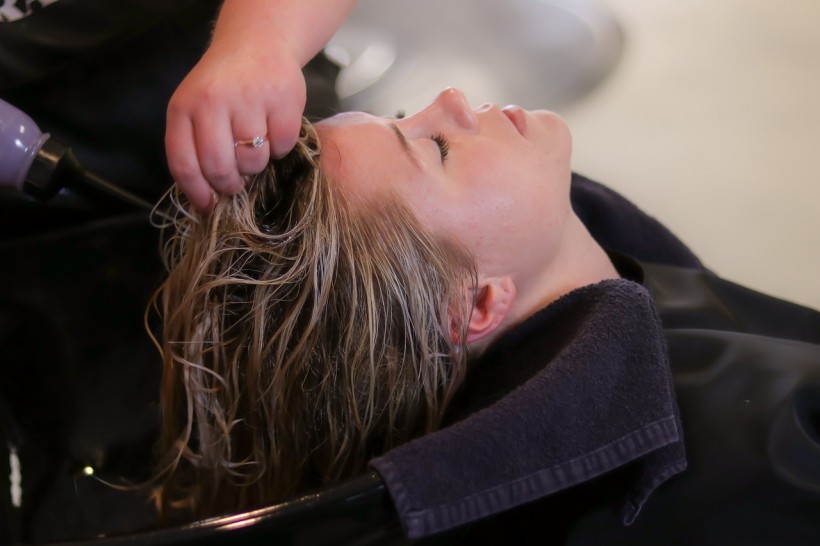In the course of two years, a woman ended up developing kidney damage three times after repeatedly receiving hair-straightening treatment at a salon.
Woman's Kidney Damage Linked to Hair-Straightening Treatments in Salon
She developed kidney damage three different times after her hair-straightening salon visits. According to doctors, one of the products used for her treatment could be the culprit behind the organ injuries.
The woman went to a salon to undergo hair-straightening treatments in July 2022, April 2021, and June 2020. Though she did not have any previous health conditions, she experienced diarrhea, vomiting, back pain ,and fever on the day of each salon visit. The woman also reported a burning feeling on her scalp during the treatment. She also ended up developing head ulcers briefly after the treatment.
Doctors discovered that the woman also had elevated creatinine levels in her blood, which signified a kidney malfunction. The woman also had blood in her urine, though she did not exhibit other infection signs. A computer tomography (CT) scan also showed that her urinary system, which covers her ureters, urethra, bladder, and kidneys, was not blocked.
During each appointment, her hair was treated with a hair-straightening cream that had glyoxylic acid. The doctors think that this could have caused her scalp to ulcerate and burn. Her case was noted in the "Kidney Injury and Hair-Straightening Products Containing Glyoxylic Acid" study.
ALSO READ: US FDA May Propose Ban on Hair-Straightening Chemical Products Due to Associated Health Risks
Glyoxylic Acid in Hair-Straightening Creams
Based on mouse experiments, the doctors also argued that the acid was absorbed through her skin and eventually arrived at her kidneys, leading to kidney damage during breakdown.
According to Dr. Joshua David King, an associate medicine and pharmacy professor from the University of Maryland, who did not participate in the case, the study authors have convincingly demonstrated that topically applying glyoxylic-acid-containing hair-straightening creams could lead to kidney damage.
The doctor explains that it would be a wise move to ban the chemical in such products and to urge manufacturers to opt for a safer compound instead.
In recent times, glyoxylic acid has been included in such products as an alternative for formaldehyde, which is a toxic chemical that can be released into the atmosphere once heated and which can lead to health issues.
However, based on anecdotal reports, such products could be linked to kidney damage. A study involving 26 kidney-injury patients in Israel discovered that eleven of them used products with glycolic acid derivatives. This chemical is broken down into glyoxylic acid within the liver.
To know more about the link between kidney damage and glyoxylic acid, the doctors that were involved in the case performed a lab mouse experiment. They applied the product used at the salon to the backs of five different mice. The product had 10% glyoxylic acid.
The researchers then repeated the procedure with petroleum jelly among five other mice to serve as the comparison group.
The following day, they observed that the mice with glyoxylic acid had elongated crystals of a compound known as calcium oxalate monohydrate in their urine. In contrast, the petroleum-jelly mouse group did not have them.
Retired senior scientist John Bucher from the US National Institutes of Health (NIH), who did not participate in the report, explains that it is known that glyoxylic acid can be metabolized by humans into oxalic acid, which ends up binding calcium for the formation of calcium oxalate crystals. If these build up and reach high levels, they could lead to kidney damage and the reported symptoms.
The mouse group that was exposed to the product also had remarkably higher blood creatinine levels compared to the other mice. This was within an exposure period of 28 hours. On top of this, the exposed mice also had dense calcium oxalate monohydrate deposits within the kidneys.
Dr. King explains that these crystals could lead to kidney damage at microscopic levels. If poisonings are large enough, they may lead to kidney failure.
In the case of the woman, her kidney function rapidly improved after each visit. This means that the effects in her case were apparently short-lived.
Nevertheless, the doctors say that such hair products must be avoided and even discontinued.
RELATED ARTICLE: Women Using Chemical Hair Straightening Products May Be More Prone to Uterine Cancer
Check out more news and information on Medicine & Health in Science Times.



![Earth's Quasi-Moon Kamo‘oalewa Could Originate From Lunar Surface Not Asteroid Belt [Study]](https://1721181113.rsc.cdn77.org/data/thumbs/full/53275/89/56/50/40/earths-quasi-moon-kamo-oalewa-could-originate-from-lunar-surface-not-asteroid-belt-study.png)











